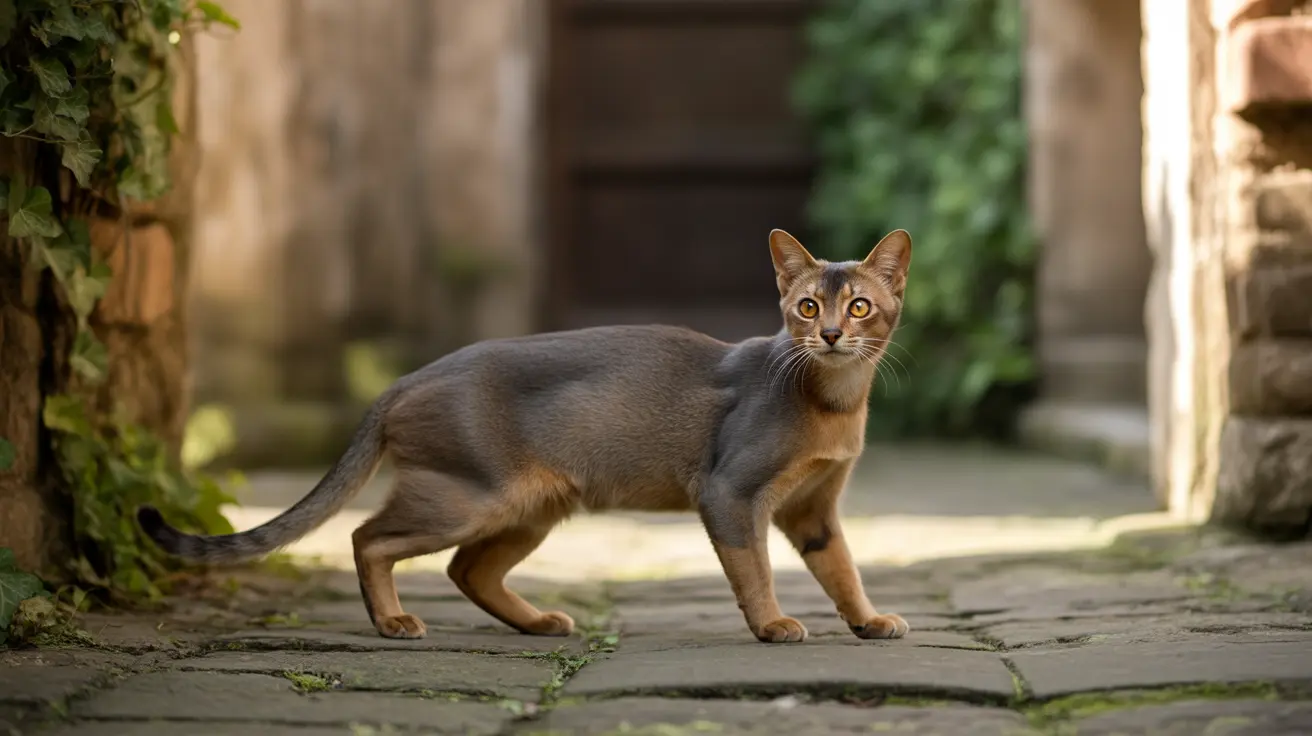The story of how our beloved house cats came to be is a fascinating tale spanning thousands of years. Modern domestic cats share their ancestry with wild felines, specifically the African or Near Eastern wildcat (Felis silvestris lybica). Understanding their origins helps explain many behaviors we see in our feline companions today and reveals the remarkable journey of one of humanity's oldest animal partnerships.
From ancient burial sites to genetic studies, evidence shows that cats began their relationship with humans over 10,000 years ago. This relationship would eventually transform a wild hunter into the charismatic house pet we know today, while still maintaining many of its ancestral traits.
The Wild Ancestors of Modern Cats
The primary ancestor of all domestic cats is the African wildcat (Felis silvestris lybica), a small, fierce predator that originated in the Middle East and North Africa. These wildcats were naturally drawn to early human settlements in the Fertile Crescent, where stored grain attracted rodents – their preferred prey.
Unlike other wildcat species, F. s. lybica showed a unique adaptability to human presence, leading to a gradual process of natural domestication. This species possessed the perfect combination of hunting prowess and tolerance for human interaction that would make them valuable companions.
Early Domestication and Human Relationships
The earliest concrete evidence of cat-human bonds comes from a remarkable discovery in Cyprus – a 9,500-year-old burial site where a human was laid to rest alongside a cat. This finding is particularly significant because cats weren't native to Cyprus, indicating humans deliberately brought them to the island.
The relationship between cats and humans strengthened significantly in ancient Egypt, where cats achieved an almost divine status. They were revered as protectors of grain stores and symbols of grace and fertility, with the goddess Bastet often depicted in feline form.
The Spread of Domestic Cats Worldwide
From their origins in the Fertile Crescent, domestic cats spread globally through trade routes and human migration. Phoenician traders played a crucial role in introducing cats throughout the Mediterranean region and beyond. By the time of the Roman Empire, cats had established themselves across Europe, Asia, and North Africa.
Today's global cat population exceeds 600 million, making them one of the most successful domesticated species. Despite this widespread domestication, modern cats retain many characteristics of their wild ancestors, including their hunting instincts and independent nature.
Modern Cats: A Bridge Between Wild and Domestic
Unlike many other domesticated animals, cats have undergone relatively little physical change from their wild ancestors. They maintain their keen hunting abilities, territorial behavior, and solitary nature. However, domestication has led to increased sociability with humans and reduced aggression.
Genetic studies reveal that domestic cats share 95.6% of their DNA with tigers, highlighting their close connection to wild felids. This genetic heritage explains many of their instinctive behaviors, from stalking prey to marking territory.
Frequently Asked Questions
What wildcat species are domestic cats descended from?
Domestic cats are descended from the African or Near Eastern wildcat (Felis silvestris lybica), a small wild feline that still exists in parts of Africa and the Middle East.
How did the African wildcat (Felis silvestris lybica) become the ancestor of today's house cats?
These wildcats were naturally drawn to early human settlements where they hunted rodents attracted to stored grain. The tamest individuals gradually developed closer relationships with humans through a process of natural selection.
When and where did cats first begin their relationship with humans?
Cats began their relationship with humans approximately 10,000-12,000 years ago in the Fertile Crescent region of the Middle East, coinciding with the development of agriculture.
How did ancient civilizations like Egypt influence the domestication and spread of cats?
Ancient Egyptians formalized the human-cat relationship around 4,000 years ago, elevating cats to a sacred status. They played a crucial role in protecting grain stores and became integrated into religious and cultural practices.
Why do domestic cats still retain many traits and behaviors of their wild ancestors?
Unlike other domesticated animals, cats underwent natural rather than selective breeding for most of their history. This resulted in fewer changes to their basic instincts and behaviors compared to their wild ancestors.
The remarkable journey from wild hunter to beloved household companion makes cats unique among domesticated animals. Their story continues to evolve, but their ancient origins remain evident in every purr, pounce, and peaceful nap in the sun.






